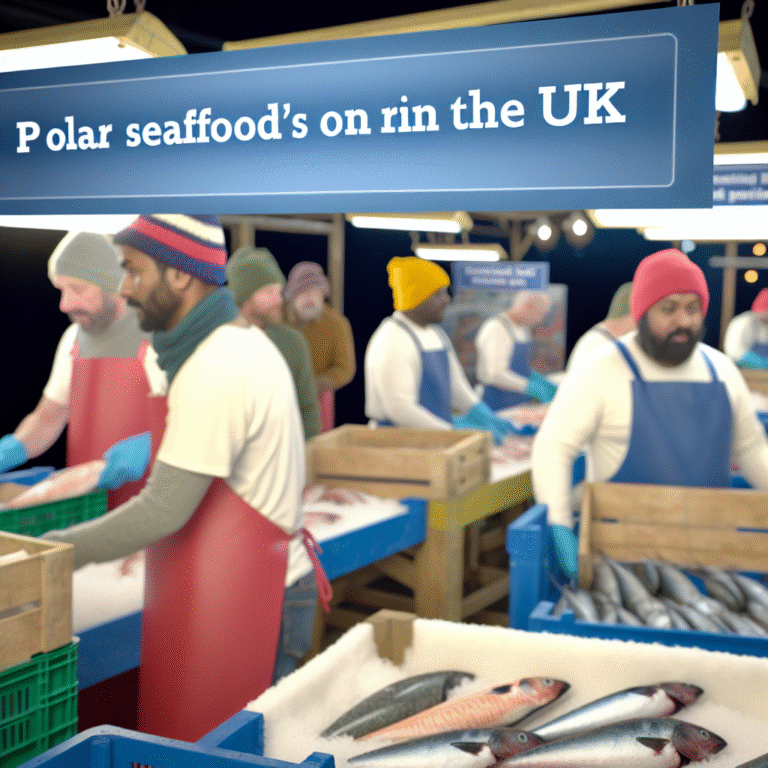Polar Seafood: Navigating New Waters in the UK Market
Polar Seafood, recognized as the largest distributor of cooked and peeled cold-water prawns globally, is making significant strides in the UK. The company has successfully fortified its foothold in the British market, defying expectations in the wake of Brexit.
“Our revenue has remained stable, and in fact, we’ve seen growth,” states Henrik Leth, CEO of Polar Seafood Denmark, speaking to Sermitsiaq about the company’s resilience following the UK’s departure from the EU.
Leth attributes this success to a strategic shift in their product mix: “Since 2020, we’ve increased the share of shrimp sourced from Iceland and Great Britain,” he adds. This pivot has proven fruitful, with the company experiencing enhanced sales volumes and overall turnover in the UK.
Mastodons of the Seafood Industry
Polar Seafood Denmark is a joint enterprise shared between two North Atlantic powerhouses: Greenland’s Polar Seafood Greenland, located just northeast of Aalborg, and Iceland’s Brim. “Our sold volumes and turnover in Great Britain have increased since Brexit; in fact, 2024 and 2025 have been landmark years for us,” Leth explains.
The UK stands as the largest and most pivotal market for both Polar Seafood Denmark and its counterpart, Royal Greenland. The bulk of shrimp exports to the UK originates from Greenland, Iceland, and Canada, with some also coming from Norway.
Feeding the British Market
In the past year, Polar Seafood exported just over 4,000 tonnes of shrimp to the UK, representing 20 to 25 percent of its total shrimp exports, according to Group CEO Leth. The UK has recently granted the company a duty-free shrimp quota of 6,500 tonnes, which includes 1,000 tonnes produced at their Icelandic shrimp factory.
However, the backdrop of Brexit has been challenging. Following the UK’s exit from the EU, tariffs of up to 20 percent have been imposed on Greenlandic goods, from fish to shrimp. This has been a significant loss for competitors like Royal Greenland, which has reported a staggering DKK 331 million decline in revenue in the British market since 2020.
The Road Ahead: Trade Agreements on the Horizon
Amid these complexities, Jens-Frederik Nielsen, the chairman of Naalakkersuisut, recently met with British Prime Minister Keir Starmer to discuss resuming negotiations for a free trade agreement. These discussions had been paused ahead of the UK’s general elections slated for spring 2024.
“We welcome the possibility of a trade agreement, but we are firmly against relinquishing Greenlandic shrimp and fish quotas to Great Britain,” Leth expresses. “We already allocate quotas to the EU, and that complicates our prospects for developing Greenland’s fishing industry.”
As Polar Seafood continues to navigate these turbulent waters, it remains poised for growth, determined to maintain its status as a leader in the global seafood market.
